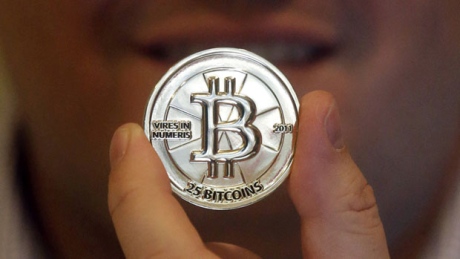
Bitcoin regulation is necessary for its success, said Bank of Canada
According to a recent paper published by Bank of Canada, researches explain that Bitcoin regulation is necessary for it to reach worldwide success.
A paper published this week, in fact, suggests that digital currencies like bitcoin won’t succeed in the long-term without any government support.
To write this research, experts examinated the viability of virtual currency, looking to previous examples of Canadian currency such as the so-called “Dominion” as a guide.
This is not the first time Bank of Canada is involved in blockchain and bitcoin-related projects.
A few months ago, in fact, we saw Bank of Canada involved in the so-called “Project Jasper” to develop a prototype system for issuing a bank-backed digital currency and a payment system using the technology.
While we are still waiting to know more details about Project Jasper, the just released paper explains a common thinking among central banks on the topic of cryptocurrencies: bitcoin and other private digital currencies need goverment support to succeed.
“We conclude that well designed and managed private digital currencies could circulate widely but only with appropriate government regulation to ensure their safety, soundness, and uniformity.”
Bank of Canada has already expressed its concern about digital currency, saying a few years ago that digital money popularity could reduce the effectiveness of monetary policy.
“A central bank can always get its digital currency into circulation, but its digital currency will not necessarily drive out existing private digital currencies,” wrote the authors of the paper.
Bitcoin regulation worldwide
From Poland to Denmark, from Switzerland and Japan, several countries all around the world are working on Bitcoin regulation projects.
Recently European Commission created also a task force to study and regulate digital currencies and the blockchain within the whole country.
Click here to read more about Bitcoin regulation in Europe and beyond.
Open your free digital wallet here to store your cryptocurrencies in a safe place.

Central Bank of Canada revealed the digital Cad coin
Is Cad Coin the future for Canada?
Banks: in love with the Blockchain?
Open your free digital wallet here to store your cryptocurrencies in a safe place.

DH Corporation introduced blockchain solutions
D+H partners with Ripple
Download the whitepaper here
Open your free digital wallet here to store your cryptocurrencies in a safe place.

Canada is second most popular country for bitcoin investment
(TorontoSun) Some $10.5 million of venture capital has been invested in bitcoin in
Canada, putting us behind the U.S. and just ahead of China, the
Montreal Economic Institute says.
government regulation puts its growth and development at risk in Canada,
the think-tank warned.
number of users, clear rules are required, along with some kind of
governmental acceptance,” study author David Descoteaux said in a
statement.
Montreal, alleges the Bank of Montreal shut down its account and those
of other businesses that trade in bitcoin.
of currency innovation — elsewhere to set up shop, the think-tank said.
be used as a currency, explain why the digital currency is popular in
Germany and why this country was one of the first bitcoin hubs,”
Descoteaux said.
its own regulatory framework, it should ensure that it remains so.”
Open your free digital wallet here to store your cryptocurrencies in a safe place.
Canada and Israel take a different approach to Bitcoin
(SiliconAngle) Bitcoin gained a lot of momentum in 2013, as many people
experimented with it for the first time. It’s not surprising that 2014
also started with a bang for Bitcoin, when its value hit close
to $1,000. Some online shops have started accepting the cryptocurrency
as a form of payment, online sites use it so people can send donations,
and the Chicago Sun-Times has begun experimenting with it to raise funds for the Taproot Foundation.
many governments aren’t too keen about accepting it as a legal tender
just yet. Both India and China
have both warned against Bitcoin in recent weeks, resulting in some
significant fluctuation of its value. But even though there’s been some
strong opposition in these countries, it seems that most others are open
to the possibility of Bitcoin becoming a legal currency in the future.
monitoring what others are doing about it before coming up with a plat
as to how to approach the cryptocurrency.
clarified that only Canadian bank notes and coins are considered as
legal tender. It doesn’t consider Bitcoin as a legal tender, but that
doesn’t mean that the Canadian government doesn’t see its potential,
reports The Verge.
but not for paying taxes, and businesses will not be required to accept
it as a form of payment.
many substitutes — like Bitcoin — should generally require much less
intensive oversight and regulation because they pose much less risk to
the Canadian financial system as a whole,” said Bank of Canada
spokesperson Alexandre Deslongchamps.
how it all unfolds, but this policy may change in the near future.
Currently, some financial institutions in Israel are already engaged in
Bitcoin transactions, but regulators haven’t said a thing about it yet,
reports CoinDesk.
that wrong kind of attention. Bitcoin could be used to dodge tax
payments and can even be useful for money laundering, but regulators
feel like they don’t currently need to take a stand regarding any form
of digital currency, since they are still trying to figure out what the
rest of the world will do with it.
succeed, and it would be a pity if it were to occur in the shadows and
not under the supervision of the banking system,” Attorney Shiri Shaham,
who specializes in banking law, stated.
Open your free digital wallet here to store your cryptocurrencies in a safe place.

Canada has decided to reveal some of its plans for virtual currencies
Open your free digital wallet here to store your cryptocurrencies in a safe place.
